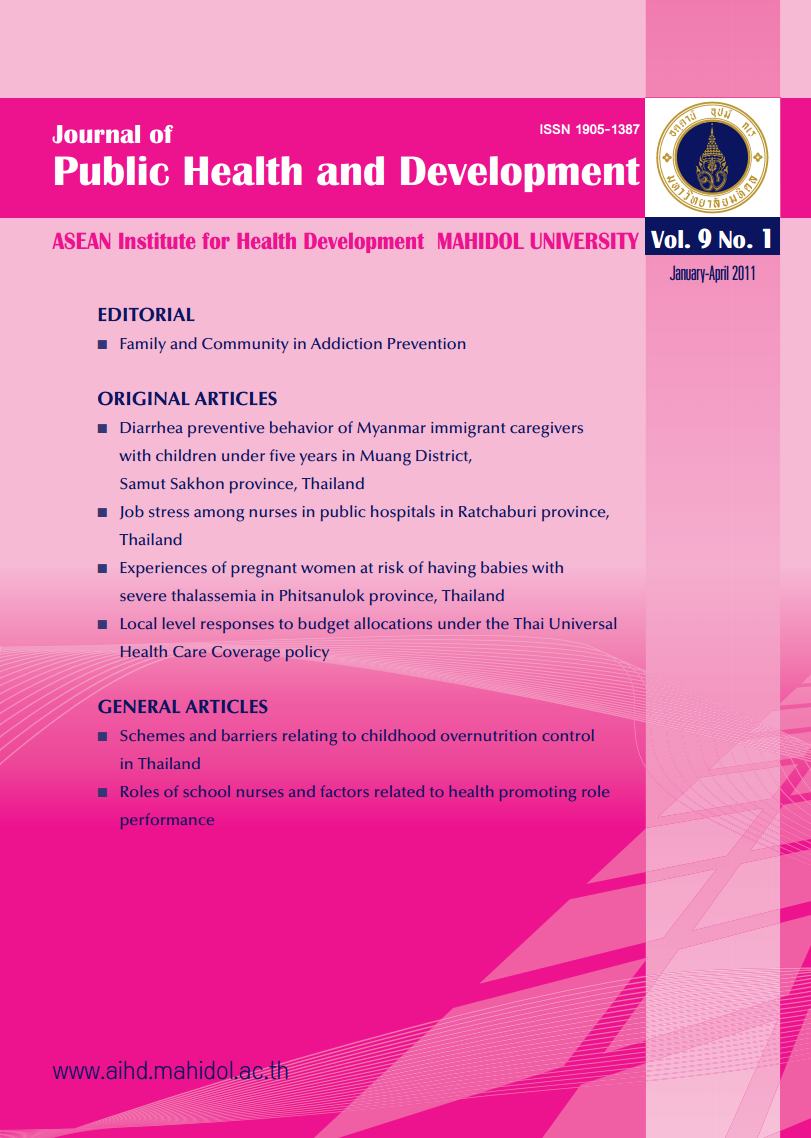Local level responses to budget allocations under the Thai Universal Health Care Coverage policy
Main Article Content
Abstract
This study aims to explain how health care providers and health managers at district and provincial levels have responded to national changes in the budget allocations of the Universal Health Care Coverage (UC) Scheme; to determine the main factors that shaped these actors’ responses; and to explore the extent to which equity concerns were taken into account in decision making about budget arrangements at the local level. Buriram and Kamphaengphet Provinces were purposively selected for this case study. Both documentary analysis and in-depth interviews of health personnel at the local level were used.
The study found that mobilization of the UC budget inclined to a bottom-up approach. Decision-making powers were delegated to provincial health boards and Contacting Unit for Primary Care (CUP) boards. The budget allocations depended largely on how the powers were distributed among members of the provider-manager networks and their formal and informal relationships. Responses of the local actors depended on the financial and service pressures they faced.
When knowledge and experience of the central administration could not properly guide the implementation at local level, the local actors needed more time to learn how to execute the policy by trial and error. Major changes in the UC budget allocation system somehow pushed the local providers and managers to adapt their practices and organizational behaviors for achievable services and financial sustainability.


